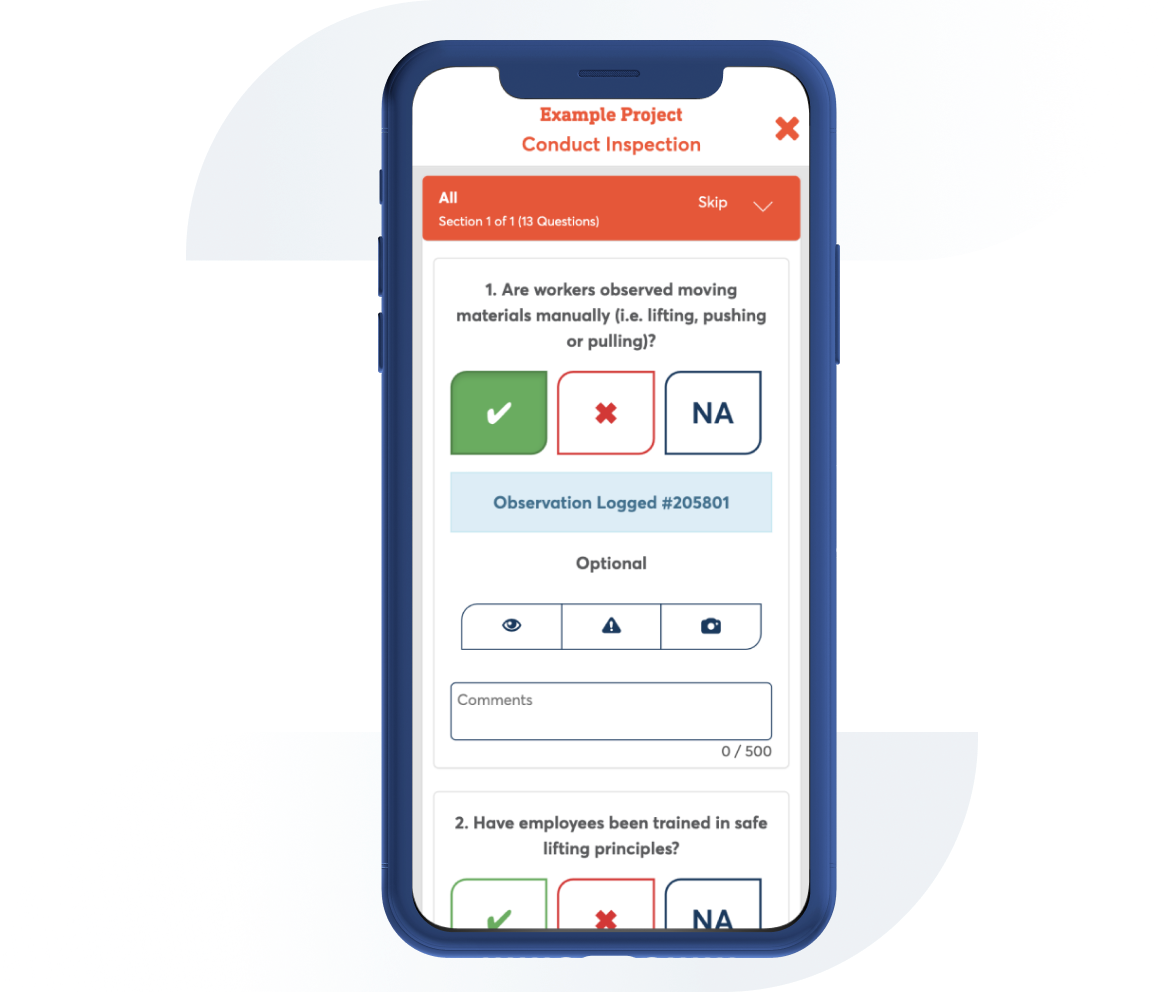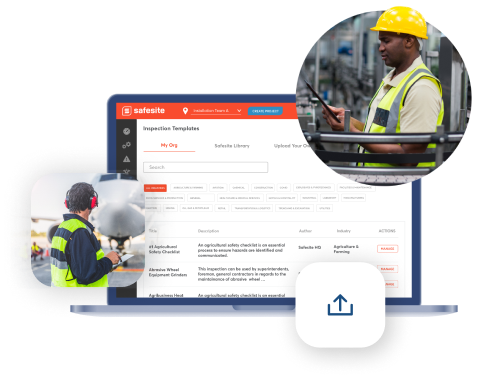Hazard Identification Audit
Contributor: Safesite Jurisdiction: USA
Use to review communication of emergency protocols. A HAZCOM Program is in place for employees working with hazardous chemicals/worksite hazards identified and removed to prevent injury/accidents.

Template Preview
1. Is there a written Emergency Action Plan specific to the job site (If < 10 workers, plan can be verbally transmitted)?
Actions
2. Is site evacuation information including alarm signals, evacuation routes and gathering points clearly posted and understood?
Actions
3. Is there a method of accounting for all personnel after an site evacuation?
Actions
4. Are portable fire extinguishers available on each floor, and is one extinguisher provided per 3000 sq. Ft or within 75 Ft. of the protected area?
Actions
5. Are portable fire extinguishers fully charged, inspected monthly and serviced annually?
Actions
6. Are emergency eyewashes (and showers if applicable) available, inspected and can be reached within 10 seconds when needed?
Actions
8. Is a properly sized, inspected and stocked First Aid Kit available on the job site?
Actions
9. Are employees observed traveling outside of designated walkways, walking while distracted or walking without eyes on the path?
Actions
10. Are aisles, stairways and passageways properly illuminated?
Actions
12. Are flexible cords and cables prohibited from being used as a substitute for fixed wiring of a structure; attached to building surfaces; concealed; run through holes in walls, ceilings, or floors?
Actions
13. Are sufficiently safe clearances maintained for aisles, between racks and at loading docks or passages where forklifts are used?
Actions
14. Are warnings or mirrors installed at intersections or blind corners where pedestrians cannot be seen by forklift operators?
Actions
15. Are forklift drivers observed following safe procedures for picking up, putting down and stacking loads?
Actions
16. Are the existing Electrical Panel Directories and Equipment Disconnecting Means accurately labeled, legibly marked, and kept updated to indicate specific purpose?
Actions
17. Does the organization have a written Control of Hazardous Energy (LOTO) Program?
Actions
18. Do Authorized Workers who perform lockout-tagout have appropriate training?
Actions
19. Are pallet storage racks installed and properly braced per manufacturer's guidelines, with each post securely anchored to the floor?
Actions
20. Is each section of pallet rack maximum load clearly posted to avoid overloading and prevent damage to the racks?
Actions
21. Are pallet racks visibly damaged from forklifts: i.e. Bent horizontal cross braces; Dings, dents, and damaged end pieces?
Actions
22. Is material stacked on pallet racks kept greater than 18" from overhead sprinklers?
Actions
23. Are only authorized and trained personnel permitted to use machine tools, corded electric power tools, pneumatic or powder-actuated equipment?
Actions
24. Is there adequate space in the workshop for projects and machinery repair?
Actions
25. Are overhead hoists and hydraulic jacks available and have they been load-rated and inspected?
Actions
26. Does the organization have a written Hazard Communication (HAZCOM) Program that is available to employees who use chemicals in the workplace?
Actions
27. Is there a current SDS for every hazardous chemical being used by facility maintenance or in the facility?
Actions
28. Is each container of hazardous chemicals in the workplace labeled, tagged or marked identifying the chemical it contains?
Actions
29. Are employees provided and trained to use appropriate personal protective equipment (I.e. glove types, safety glasses, hearing protection etc.) necessary for working safely at the facility?
Actions
30. Are an adequate number of restrooms and a sanitary break area (for eating) provided at the facility?
Actions
31. Write Comments or Remarks here:

Can't find what you are looking for?
